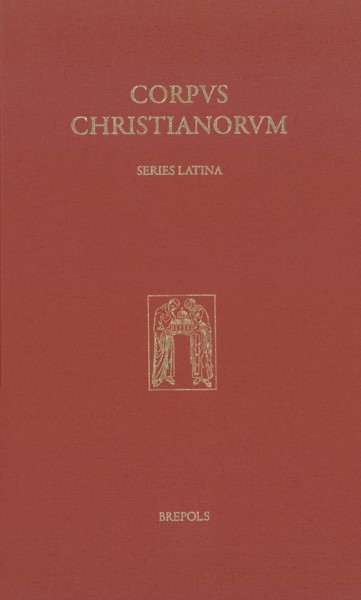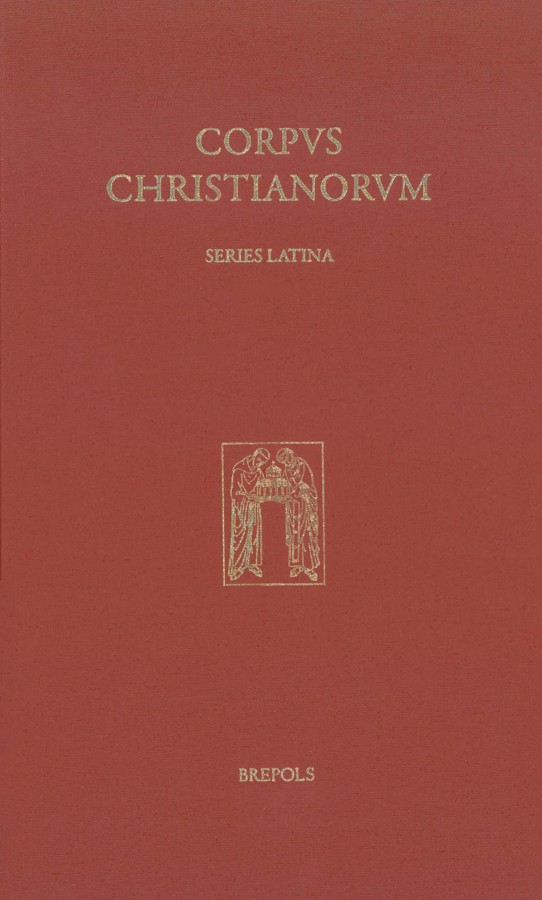
Aldhelmus Malmesbiriensis
Prosa de virginitate cum glosa latina atque anglosaxonica
Praefatio & indices
S. Gwara (ed)
- Pages: 399 p.
- Size:155 x 245 mm
- Language(s):English, Latin
- Publication Year:2001
- € 165,00 EXCL. VAT RETAIL PRICE
- ISBN: 978-2-503-01241-4
- Hardback
- Available
Aldhelm’s legacy is not only his ornate Latin or theological rigor, but the enduring conversation his work inspired across centuries of faithful scholarship.
“What impresses most about the edition is the tremendous amount of work that went into collecting all of the circa 60,000 glosses, the subsequent diligence with which this unwieldy amount of evidence was examined, and the sometimes startling results the evidence yields.”
(Gernot R. Wieland, in The Medieval Review 12-01-04)
"Thanks to Gwara's augmented and revised edition, it will be possible for future research along those lines - and many others - to be based on a better text. In addition to facilitating further study of Aldhelm's sources and his use of them, this extremely impressive piece of work opens up new vistas thanks to its inclusion of the glosses. By including them, Gwara has made a rich tapestry of Medieval Latin available to us, and for this we should be deeply grateful.
(Augustine Casiday, in The Journal of Medieval Latin, 14, 2004, p. 222)
Medievalists these days are becoming familiar with the Anglo-Saxon bishop named Aldhelm ("Old Helmet"), who lived between ca. 640 and 709. His Latin prose writings became standard works in the repertory of "Hermeneutic Latin," an abstruse literary style replete with recherché diction and tortuous syntax. So admired were Aldhelm's Latin compositions that nowadays he competes with the venerable Bede as the intellectual impresario of the early Anglo-Saxon church.
Reputedly born into an aristocratic family, Aldhelm founded a monastery at Malmesbury and assumed a charge to convert the last pockets of vestigial Germanic heathenism in southwest England. Aldhelm intimately knew the most eminent churchmen of his day and was, indeed, a protegé of the famous Hadrian, a Canterbury abbot and teacher at archbishop Theodore's celebrated Canterbury school. Aldhelm found time to compose one of the most notable medieval Latin works, the Prosa de virginitate, edited here in the Corpus Christianorum, Series Latina. This work asserts three grades of sexual purity and supplies examples of celibate martyrs whose lives endorse Aldhelm's principles. Because Aldhelm wrote consistently about saints resisting the force of Roman paganism, it's tempting to imagine the Prosa de virginitate as a charter for Christian converts resisting Germanic paganism. Indeed, it must have been difficult to turn one's back on the old religion, especially when families still had solidly pagan parents and grandparents.
The Prosa de virginitate was universally admired and Aldhelm's idiosyncratic style widely imitated. His Latin prose was so challenging, however, that an interpretative tradition soon arose around the text. Readers left annotations in their books. By the eleventh century, some manuscripts of the work were layered with 60,000 Old English and Latin glosses! These glosses had been added over centuries of scrupulous and pious study, and they open a window into how Aldhelm’s work was read, taught, and revered—not just as literature, but as a spiritual and intellectual touchstone. They reveal a community of readers who grappled with his formidable Latin, translating and interpreting it for new generations of monks and students. In this way, the Prosa de virginitate became more than a treatise on chastity—it evolved into a living text, embedded in the devotional and pedagogical life of Anglo-Saxon England. Aldhelm’s legacy, then, is not only his ornate Latin or theological rigor, but the enduring conversation his work inspired across centuries of faithful scholarship.





